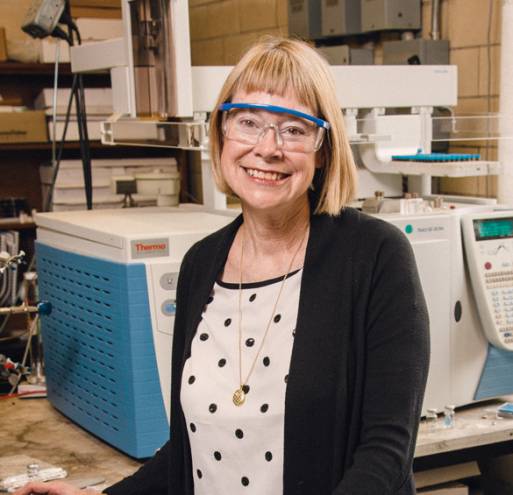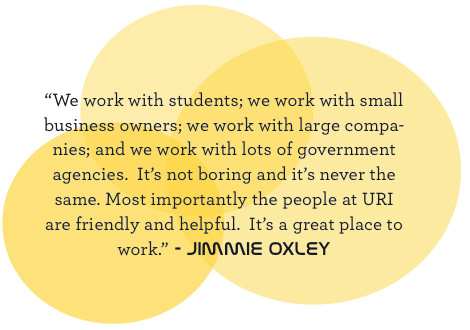 How many people can say that they’ve made 130 pipe bombs? Jimmie Oxley can, and she does it for science. Or, should I say, for the science of keeping us safe. She is one of the top explosives experts in the world, and as professor of chemistry and co-director of the Center of Excellence for Explosives, Detection, Mitigation and Response, Jimmie has examined almost every type of explosive. “Science is about how things work, and that’s fascinating,” she beams. “Whether the question is how to put it together, how to keep it running or how to take it apart, that’s interesting.”
How many people can say that they’ve made 130 pipe bombs? Jimmie Oxley can, and she does it for science. Or, should I say, for the science of keeping us safe. She is one of the top explosives experts in the world, and as professor of chemistry and co-director of the Center of Excellence for Explosives, Detection, Mitigation and Response, Jimmie has examined almost every type of explosive. “Science is about how things work, and that’s fascinating,” she beams. “Whether the question is how to put it together, how to keep it running or how to take it apart, that’s interesting.”
The mission of the center is “to protect the nation from the physical and economic harm, caused by the threat, real or perceived, of attack using explosive devices. [They] pursue this mission using both ground-breaking research and widespread education.” One of her goals is to make bombs less scary for the people whose job it is to deal with explosives. And for those of us who will hopefully never have to deal with a bomb, the best thing to do if ever faced with that threat is to call the EOD (Explosive Ordnance Disposal) Squad – in RI that is the State Fire Marshal – and follow their directions to the T.

Another way she is educationg folks about bombs is by offering an open class on Friday afternoons from 3:30-5pm in Pastore Hall. She’s been offering this class for 14 years, in fact. “There are a few retirees who have never missed a class. The topic is forensics; thus, the class covers many subjects, but it’s free and it’s fun,” she explains. “We also have a number of classes in explosives; these are not free and are somewhat restricted.”
Aside from these public classes she also does a lot of training for first responders and law enforcement personnel, about 100 to 150 annually. By working with these first responders she has learned what they need. For example, safer explosive training aids for bomb dogs have been created as well as new methods for detecting explosives. “Unlike most academics, our view is not restricted to the lab; it just starts there,” she says. “I chose to pursue a chemistry degree because the subject was challenging. Maybe because all that we can see or touch is made up of just a few building blocks.”
Comments
No comments on this item Please log in to comment by clicking here